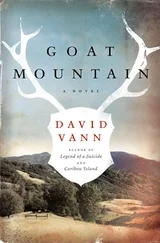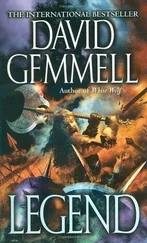David Vann - Legend of a Suicide
Здесь есть возможность читать онлайн «David Vann - Legend of a Suicide» весь текст электронной книги совершенно бесплатно (целиком полную версию без сокращений). В некоторых случаях можно слушать аудио, скачать через торрент в формате fb2 и присутствует краткое содержание. Год выпуска: 2009, Издательство: Penguin Books Ltd, Жанр: Современная проза, на английском языке. Описание произведения, (предисловие) а так же отзывы посетителей доступны на портале библиотеки ЛибКат.
- Название:Legend of a Suicide
- Автор:
- Издательство:Penguin Books Ltd
- Жанр:
- Год:2009
- ISBN:нет данных
- Рейтинг книги:3 / 5. Голосов: 1
-
Избранное:Добавить в избранное
- Отзывы:
-
Ваша оценка:
- 60
- 1
- 2
- 3
- 4
- 5
Legend of a Suicide: краткое содержание, описание и аннотация
Предлагаем к чтению аннотацию, описание, краткое содержание или предисловие (зависит от того, что написал сам автор книги «Legend of a Suicide»). Если вы не нашли необходимую информацию о книге — напишите в комментариях, мы постараемся отыскать её.
follows Roy Fenn from his birth on an island at the edge of the Bering Sea to his return thirty years later to confront the turbulent emotions and complex legacy of his father's suicide.
Legend of a Suicide — читать онлайн бесплатно полную книгу (весь текст) целиком
Ниже представлен текст книги, разбитый по страницам. Система сохранения места последней прочитанной страницы, позволяет с удобством читать онлайн бесплатно книгу «Legend of a Suicide», без необходимости каждый раз заново искать на чём Вы остановились. Поставьте закладку, и сможете в любой момент перейти на страницу, на которой закончили чтение.
Интервал:
Закладка:
KETCHIKAN
AT THIRTY, I rode the Alaskan ferry past the coastline of British Columbia, past white-ringed islands, forests extending beyond the horizon, gulls and bald eagles, porpoises, whales, all in close, rode past sunsets over the open ocean, lighthouses, small fishing villages, into Alaskan waters where mountains sloped steeply upward out of fjords, and on, finally, to the town of my childhood, strung narrowly along the waterfront, drenched perpetually in mist, the place of ghosts, I felt, the place where my dead father had first gone astray, the place where this father and his suicide and his cheating and his lies and my pity for him, also, might finally be put to rest: Ketchikan.
My first day and evening, I found a place to live where the houses were narrow and thin streets traversed but never descended directly. Long wooden stairways, their sea-grayed wood slick from mist and worn like stone, fell through skunk weed, fern, and salmonberry toward the docks and ocean below where fishing boats paused like apparitions, the small yellow floats in their netting the thousand eyes contained, rolled up, waiting. I stood before them that first night of my return, beyond sleep, and wondered at the spread of their nets, at the full transfiguration, the peacock eyes and fan sifting silently through half a mile of open ocean, drifting, seemingly, as grand and unplanned as jellyfish but more terrible, more calculating in their single purpose. This was overwrought, but it seemed in keeping with the indulgence of this trip, with the extravagance of an attempted return to childhood. The world had become, in brief moments, animated, and I its briefly unself-conscious observer.
I walked among the purse seiners and trawlers, gillnetters and great tugs, down floating planks iridescent with fish scales and waved to the two or three fishermen in their lighted cabins who heard or otherwise sensed me and looked up from their odd hours, their strange, solitary lives, to nod and look down again. Most had shotguns within reach, I remembered. Most did not feel strange and solitary at all, but hassled and trapped, limited, cheated. Fishermen, as a group, complain bitterly, despite appearances. All of which came back with a new familiarity, gifts from what felt like another life. Though I was an intruder, this was perhaps the closest I’d felt, in my few adult years, to belonging.
But I moved on, an intruder still, a tourist always, and wished I could find again the woman I had talked with just before I’d left who was working on a tug out of Seattle. She told of a seven-hundred-pound halibut, over nine feet head to tail and nearly as wide. This was during the time of waiting, when a group of tugs had to pause three days to wait out a storm farther north in their path. It was her crew’s turn to fish, to pull up twelve hundred pounds of halibut to feed crews from all the tugs, and when they had pulled this great fish to the surface, they shot it six times through the head with a.45-caliber pistol before winching it from the waters onto the deck. Even shot through and drowning in the open air, its tiny brain pierced and huge, mythical lungs exploded, the halibut was too strong to approach. Smaller halibut were impaled on a long board with a spike at one end, then stripped immediately of their skin and cut into filets, but the crew left this one to lie alone on the whitewashed concrete deck and watched from a distance.
This woman, Kate, drew the lot to clean and filet. After waiting an hour, she began with a long knife to slice one side — the back, mottled dark green and brown — into thick steaks. The spine and thin bones radiating from it lay exposed before her and she went to the head to cut away the cheeks, where the meat is rich and stringy, a delicacy. One cheek had been shot through and could be recovered only in part, but the other came free in a single huge steak white as marble that lay folded over her hand as she went to the hose to wash it and drop it into a plastic bucket. As she walked, however, the halibut cheek convulsed and leaped in an arc four feet into the air, over a line and onto the deck, where it hit with more of a thud than a splat, though only a small remnant of the huge corpse before her. “Gods are born of less than that,” she told me, leaning in close, laughing.
Cold dark deep and absolutely clear, element bearable to no mortal, to fish and to seals…I mumbled Elizabeth Bishop poems to the water, to the oil stains like rainbows in this artificial light and the red starfish rippling below. I had always imagined the poems set here, in Ketchikan, not on the Atlantic.
Out in the channel, the lights of a convocation, twenty to thirty boats all drawn together to wait for a storm to pass, for the time when they could leave the shallows and enter open ocean again. Their arrangement puzzled in a way that pleased, also: bright floodlights high up, small cabin lights, globes everywhere across their backs exposing the great nets, buffed aluminum, floats orange and red, all intermingled and reflected on waters calm as mirrors and no horizon visible, no clear seam for the surface, for water and air, reflection and light. And the only sound that of small bells, seeming to come from much farther away, the bells high up on the lines of trawlers, the bells that signaled fish. No voices.
I walked to the end of the docks, studied for a long time a small rowboat. A rare quiet night, no fishermen visible at this far end, no one to see me, and this rowboat tied only by two frayed ropes, bow and stern. It was old wood, green paint blistered and cracked, patchy pale white showing underneath, and the name on its stern the Lady J, in black lettering, also cracked. I stepped into it, still not deciding to take it out but dreaming already of rendezvous with ocean liners, of guests in tails and sequins, voices near as infants, intimate, faces thin and sharp as beaks. A warm, strong breeze carrying all but the water, no ripple but its hold strong on everything else, making distance impossible. I rowed unnoticed beneath masts and sonar, bells and spotlights, rowed, I fancied, with the seamless propulsion of jellyfish in the one element, rowed past jagged rocks onto a sea nostalgic and opaque, swelling slowly, as if considering spilling over until the rim of the world lifted inevitably, slipped, and I was in a rowboat, wet from mist and shivering, hearing the slap of oars, the creaking of the locks. I sang because the high moment had passed and that was what was left, sang a song by Memphis Slim, crooning the lament of a fool in love back to the docks, seemingly loud and a little dizzy and, by all apparent signs, invisible. Small sucking noises from the boats in their slips as I returned, trapped water beneath tri-hulls and the rub of bumpers against wood.
My father loved something about Alaska. Though frustrated himself, he had many friends who lived the kinds of lives he imagined. One was a man named Healy who lived a hundred miles off the Parks Highway at a point between Anchorage and Fairbanks where the highway cross-sected nothing. No other human habitation as far as any horizon, so that on a cool summer evening, when the ranges far off, their snow gone violet near midnight, seemed to float up out of the tundra as if out of oceans and the ground everywhere lost its solidity, its particularity, in my father Healy vanished, became him, and he knew freedom.
Then the night would grow colder, the light would almost fade, and my father would go inside, see the cabinets Healy had built, even the walls of his small cabin, and the blankets hung between the bed for himself and his wife and the bed for their two small children. Over a couch, Healy had draped the hides of black bears, brown bears, mountain goats, deer, caribou, and my father would touch these with one hand but keep the other in his pocket. At this point, he would have lost words, too broken any longer to praise. I touched these hides, also, forgotten by my father but watching him, feeling a child’s portion of regret, desire, longing, my father’s longing. If only a life could be bent into the shape of another’s, momentum diminished. After a long drive home very late, during which I slept, my father would rise again early to drill out the tiny infected nerves of teeth, fill cavities, make molds, instruct and squint and see his whole life reduced to something cramped and small.
Читать дальшеИнтервал:
Закладка:
Похожие книги на «Legend of a Suicide»
Представляем Вашему вниманию похожие книги на «Legend of a Suicide» списком для выбора. Мы отобрали схожую по названию и смыслу литературу в надежде предоставить читателям больше вариантов отыскать новые, интересные, ещё непрочитанные произведения.
Обсуждение, отзывы о книге «Legend of a Suicide» и просто собственные мнения читателей. Оставьте ваши комментарии, напишите, что Вы думаете о произведении, его смысле или главных героях. Укажите что конкретно понравилось, а что нет, и почему Вы так считаете.












